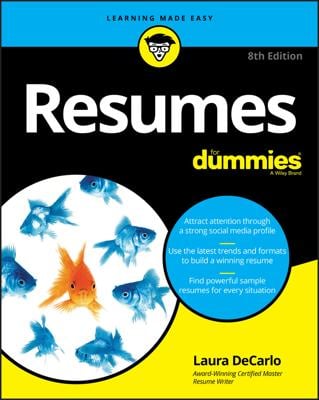A career change is exciting, but it can be worrisome. A vision and system for starting a new career can make it easier and efficient. If you take time at the beginning to discover what you really want to do in your work life, you can then explore possibilities and move forward.
Whether you are tired of your current work and just want something different, or you have a specific career in mind, an organized approach will serve you well. Whether you want an entry-level job or a completely new profession, these steps will help.
Know what you do best. Make a list of what you enjoy doing and what you do best. They are usually the same things. Don't think about jobs yet, think about your talents and interests.
List all the things you like to do, including what you think doesn't earn money.
Think about what other people tell you about yourself. If friends say you are good at identifying birds, for instance, put that on the list.
Make a list of the talents and skills those activities require — identifying birds requires observation skills and attention to detail, for instance.
List your training and experience. Volunteering counts. Unusual classes count. If you know a little bit about a lot of things, list them all.
Now think about jobs. What occupations require your talents?
Search the Internet. Try terms in such as job skills, career skills, skills assessment, and whatever else comes to mind.
Narrow the list to a few possible careers — no more than three or four. Keep changing your list until you feel confident that you'd love a job in those fields and that you would do it well. Then narrow your choices to one career and focus completely on that one.
Learn all you can about your chosen new career.
Search the Internet.
Visit your local library. Reference librarians are terrific at helping you find information.
Check with your local government employment office to learn about job possibilities in your new career. Ask about training programs, too.
Interview people in your chosen career. Remember, you're not asking for a job, you are learning about the career itself. What do successful people like about it? What skills are most important? What is it really like?
If there is a union, ask the local office for information.
Changing your mind? That's fine, just go back to step 3 or 4 and start over. It will be worth the time in the long run. When you are sure about the career path you want, move on to the next step.
Keep your old job if possible.
Strange but true: you are more likely to be hired if you are already employed. Think about taking a lower-level job in your new field to learn what you need to advance.
Do you need more training?
Check out vocational schools and colleges in your area. Learn about specific training and what job placement services they offer. Ask about classes you can take while still employed. Night and weekend programs are often available.
No training or classes in your area? Contact the human resources departments in companies that hire in your new career and ask about on-the-job training. It won't be a job interview, but treat it like one. Put your best foot forward, dress appropriately, take a resume, have questions prepared, talk about your skills and experience.
Join a union or professional organization. There are organizations for people in just about any career. One more Internet search can lead you to local or national groups.
When you have the skills and training you need, polish your resume and start your job search.

